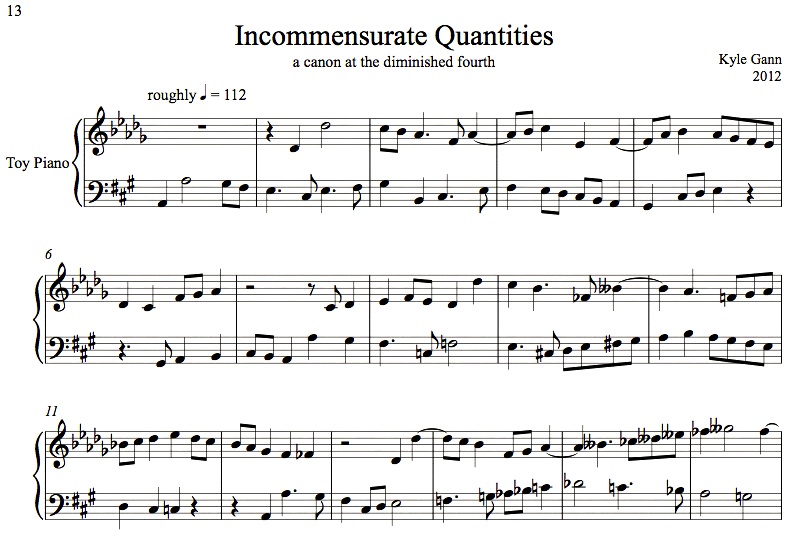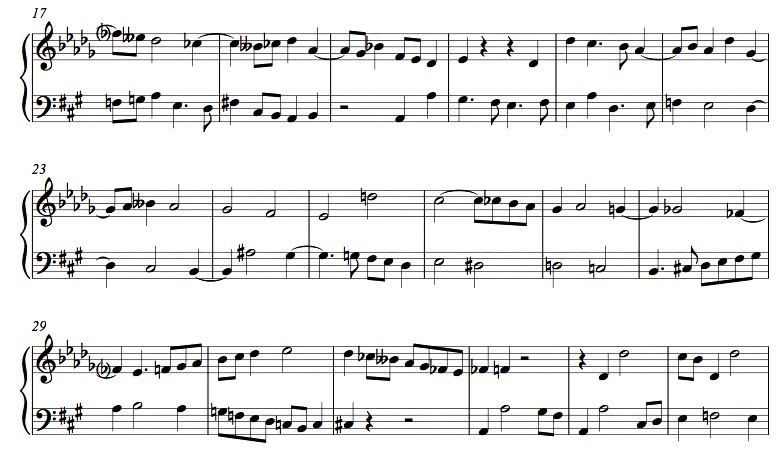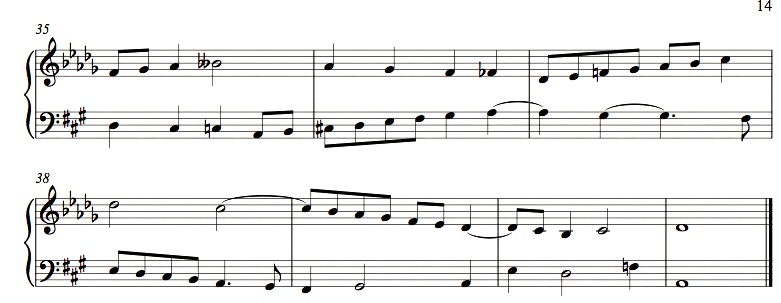I’m rather obsessed with bitonality at the moment, and the three composers who are much on my mind and stereo lately – Charles Ives, Kaikhosru Sorabji, and Darius Milhaud – all have a strong bitonal streak in their music, though that’s not as well known about the first two as it is about Milhaud, who wrote a book on bitonality. My wife Nancy gave me a three-octave toy piano for my recent birthday, and as a kind of sketchbook I wrote a suite for it called Surrealities; of the seven movements, two are atonal, one tonal, three bitonal, and one bi-modal (C harmonic minor in one hand, C Lydian in the other). I’m particularly pleased with the sixth movement, “Incommensurate Quantities,” which is a bitonal canon in A and D-flat, the only canon I know of at the interval of a diminished fourth. More to the point, it follows all the traditional contrapuntal rules, resolving every dissonance correctly, and of course contains an episode in the equidistant key of F (Gbb):
You can hear me play it here. Also another bitonal movement “Deep Denial” (A in one hand, C alternating with F# in the other), and the last (tonal) movement “Mistimed Adieu,” which I’m quite happy with.
In my youth Milhaud was one of my favorite composers, and he’s never quit being, though one doesn’t encounter his name much these days, or get opportunities to write about him. When I last visited San Francisco, Richard Friedman reminded me of a wonderful Milhaud piece I remember well from the 1960s, recorded only on vinyl, called A Frenchman in New York, written to go on the flip side of Gershwin’s American in Paris – and the Milhaud is by far the better work. To allow you to assess that judgment, I temporarily upload the recording he gave me here. I hadn’t heard it in thirty-five years, and with the first notes it all came flooding back from the recesses of my memory. Philip Glass has told me that Milhaud is one of his ongoing influences as well.



